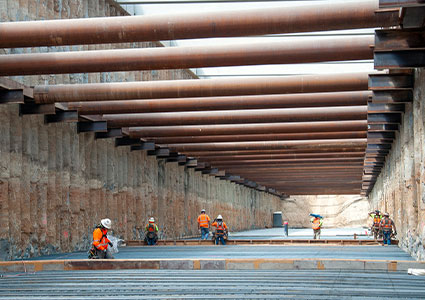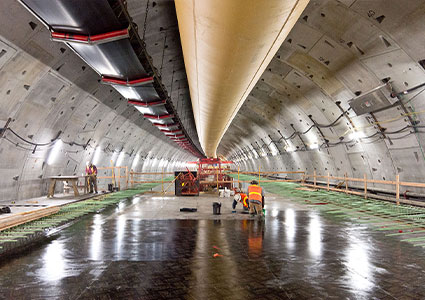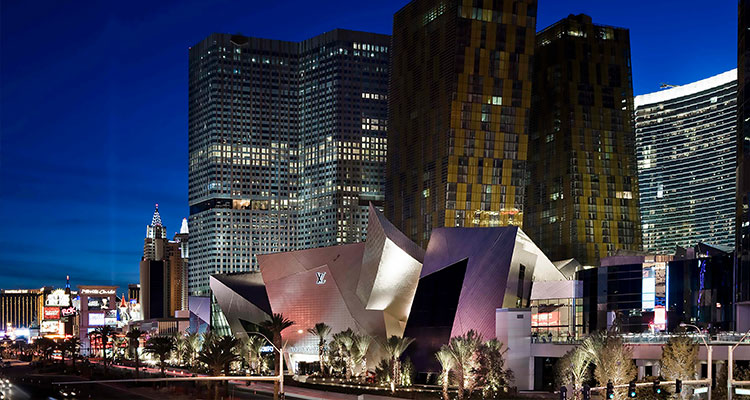From skyscrapers to railways, Fisk Electric’s diverse capabilities are key to its success
Since its foundation in 1912, Fisk Electric (Fisk) has been a national leader in the design, installation, and maintenance of electrical systems, structured cabling applications, fiber optic cables, integrated electronic security systems, and building technology solutions. The company has applied its expertise in electrical and low voltage systems to notable projects including military bases, airports, major league sports arenas, shopping centers, landmark office buildings, hotels, casinos, university campuses, and cutting-edge hospitals.
 Headquartered in Houston, Texas, Fisk’s operations are primarily located in the US, but the business has also worked in the Middle East, Spain, the Virgin Islands, and across the Caribbean. Having worked on almost every building type and unusual site conditions, Fisk offers the broadest range of electrical and technology services in the construction industry, working to build better solutions for its customers.
Headquartered in Houston, Texas, Fisk’s operations are primarily located in the US, but the business has also worked in the Middle East, Spain, the Virgin Islands, and across the Caribbean. Having worked on almost every building type and unusual site conditions, Fisk offers the broadest range of electrical and technology services in the construction industry, working to build better solutions for its customers.
Fisk was founded by John R. Fisk, who started an electrical contracting and service business at the ripe age of 21, which operated from a shed behind his father’s house. The company’s first large project occurred in 1935, when Fisk installed the electrical system within the San Jacinto Monument. From the 1940s through to the 1980s, Fisk worked on the majority of downtown Houston’s significant skyscrapers, as well as launching Fisk Telephone in 1971 and subsequently connecting people across the Southwest. In the 1990s, Fisk expanded to Las Vegas and Miami before later extending its reach to the UK and Australia through acquisition.
During the course of its history, Fisk has maintained industry leadership while expanding its services and geography to cater to market conditions and customer demands. Today, Fisk has grown into an industry-leading, one-stop building solutions and electrical services business with the values of safety, quality, and productivity at its core.
Electrical construction is the cornerstone of the business. Its commercial electrical services include work on hospitals and medical facilities, research laboratories, data centers, hospitality, educational facilities, institutional and government buildings, and sports and entertainment venues.
Major project
Fisk’s industrial electrical services span petrochemical processes, water treatment and purification, automation systems, instrumentation, Programmable Logic Controls (PLC), power generation systems, Direct Digital Controls (DDC), and calibration loop checks. Lastly, the company offers service and maintenance solutions like emergency response, disaster recovery, preventive maintenance programs, high voltage work, thermal imaging, and facility support.
The company also embraces evolving technologies, with a dedicated team focusing exclusively on the design and installation of structured cabling systems for all types of facilities or projects. The team boasts expertise in the following technologies: structured cabling, fiber optics, electronic security and CCTV, audio or visual systems, standby power solutions, networking and wireless LAN/WAN systems, automation, and fire alarms.
Furthermore, Fisk’s virtual design construction (VDC) and building information modeling (BIM) team develops electrical, communication, and technology plans to facilitate field installations and coordinate locations with other trades. Striving to provide maximum value to the customer, as well as efficiency during the installation process, Fisk has found a natural connection with the BIM process, enhanced prefabrication success, Trimble LayOut, and field productivity.
Having worked on the early phases of the Purple Line Extension on behalf of Los Angeles County Metropolitan Transportation Authority, Fisk has recently won a major contract for Section 3 of the project, which will add two stations to the line by 2026. The Westwood/UCLA station will be located under Wilshire Boulevard between Veteran Avenue and Westwood Boulevard, while the Westwood/VA Hospital station will be located south of the Wilshire Boulevard and will include two crossovers and a pedestrian bridge.
major contract for Section 3 of the project, which will add two stations to the line by 2026. The Westwood/UCLA station will be located under Wilshire Boulevard between Veteran Avenue and Westwood Boulevard, while the Westwood/VA Hospital station will be located south of the Wilshire Boulevard and will include two crossovers and a pedestrian bridge.
Pioneering provider
Both stations will be constructed of cast-in-place concrete in a subterranean environment in the middle of major urban shopping districts and city streets. Fisk is working alongside the design-build contractor, Tutor Perini, which will add 2.56 miles of new rail to the Purple Line. Tutor Perini will not only design the major support-of-excavation (SOE) down to a depth of up to 100 vertical feet below street level but will also design a temporary traffic system to carry traffic over the station’s box cavities during construction.
Another key project delivered by Fisk was the California High-Speed Rail Authority’s Construction Package 1 (CP1), the first significant construction contract executed on the initial operating section of the high-speed rail project in California’s Central Valley. The CP1 construction area is a 32-mile stretch spanning Madera to Fresno and includes 12 roadway/railroad grade separations, two mainline viaducts, one tunnel, several realignments of existing railroad tracks, utility and roadway relocations, two trench sections, and a major river crossing over the San Joaquin River.
With more than a century of experience and having worked on some of the most complex, high-profile projects across the US, Fisk has established itself as a pioneering electrical and technology services provider that will continue to grow and innovate. From Houston’s landmark skyscrapers to cutting-edge rail systems in California, Fisk can adapt its processes to serve diverse markets and will continue to do so as market demand evolves.
